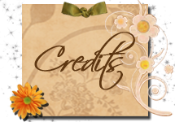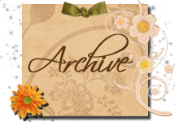
(photos courtesy of veer.com)
We've all heard of 'food for thought' and 'a penny for your thoughts' but I'd like to coin the phrase 'thought for thought.' Don't know if I'll ever be quoted but it was a good post title. Below are two quotes and part of an article to ponder. Do you have knowledge that you are not putting into action because you are waiting for more knowledge? This week translate that knowledge into action ... and perhaps wisdom will arise from the experience.
- Tell me and I forget. Show me and I remember. Involve me and I understand. --Chinese proverb
- "Knowledge is not the same as wisdom."
"Yeah, what's the difference?"
"You know how to clean a windshield, right?"
"Yeah."
"Wisdom is doing it." --Peaceful Warrior

Why Wise Leaders Don't Know Too Much
by Jeff Stibel Friday December 11, 2009 Harvard Business Review
Could it be that knowledge is overrated? Don't get me wrong — knowledge is a good thing. But there is a point at which it may be bad. Even the sturdiest shelf crumbles under the weight of too many books.
We can only comprehend so much. Our minds have limits in our ability to digest information, just as shelves are only meant to hold so many books. Too much knowledge undermines the greatest insights, the deepest conjectures.
... Wisdom can be shattered by too much information. Great scholars, for instance, tend to be great in very narrow disciplines. These scholars give ground on colloquial information so that they can digest more within their field. In many ways, we are all idiot savants: our expertise in certain areas necessitates weakness elsewhere.
Yet we still spend our days analyzing information and falling into traps. Decisions are destroyed by over-analysis. The brain is not intelligent because of the sheer volume of data it can ingest, but for the way it can quickly discern patterns — and then guess the rest. The more information you pile on, the less likely you are to make educated guesses. But educated guesses spring from wisdom: all of your past experiences, knowledge and knowhow, coupled with the most recent information and analysis. In other words, wisdom comes from your gut.
Pile on too much information and you fall victim to one of two phenomena: On the one hand, you might make a decision focused only on what has been analyzed because the abundance of information suppresses even the most relevant past experiences. This "knowledge trap" disregards our decision-making skills (often intentionally), opting instead for the logical decision-making of a computer or calculator.
People often become victims of the "knowledge trap" or "analysis paralysis," thinking they need to weigh every bit of information against all possible outcomes. Those people rarely make it very far. Those who avoid these traps — who realize they'll never have all the answers no matter how much knowledge they gather — are often the ones who succeed.

*Author Jeffrey M. Stibel is an entrepreneur, a brain scientist, and the author of Wired for Thought: How the Brain Is Shaping the Future of the Internet. He studied business and brain science at MIT Sloan and Brown University, where he was a brain and behavior fellow.





Oh, this was a great one, Dale! Really great!
ReplyDeleteYou had me from #'s 1 and 2 at the top of the post!
I've been known to get overwhelmed sometimes when I have too much information!
ReplyDeleteI love this one:
ReplyDeleteTell me and I forget. Show me and I remember. Involve me and I understand. --Chinese proverb